Archive
2022
KubaParis
THE OLD MAN GOES HOME
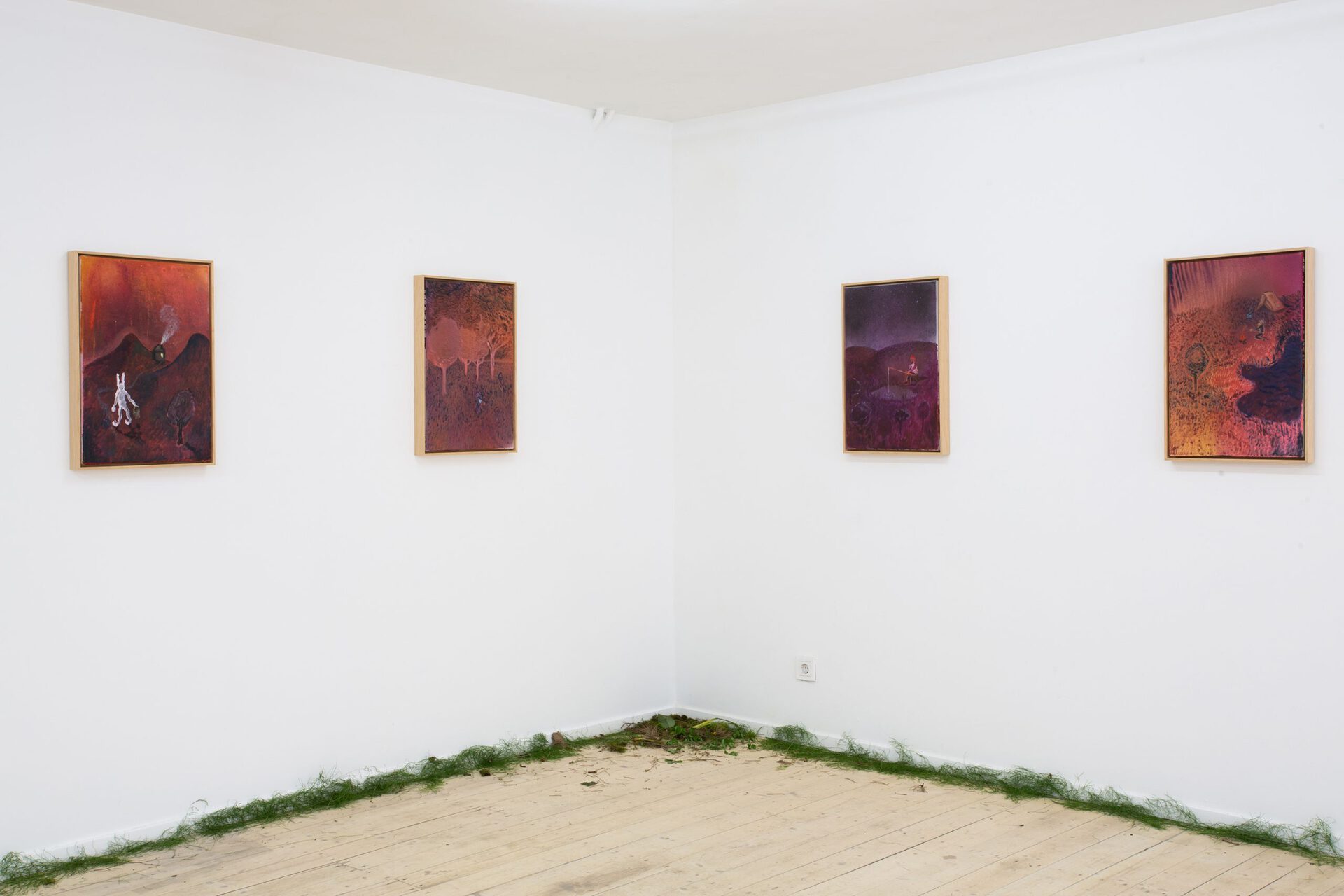
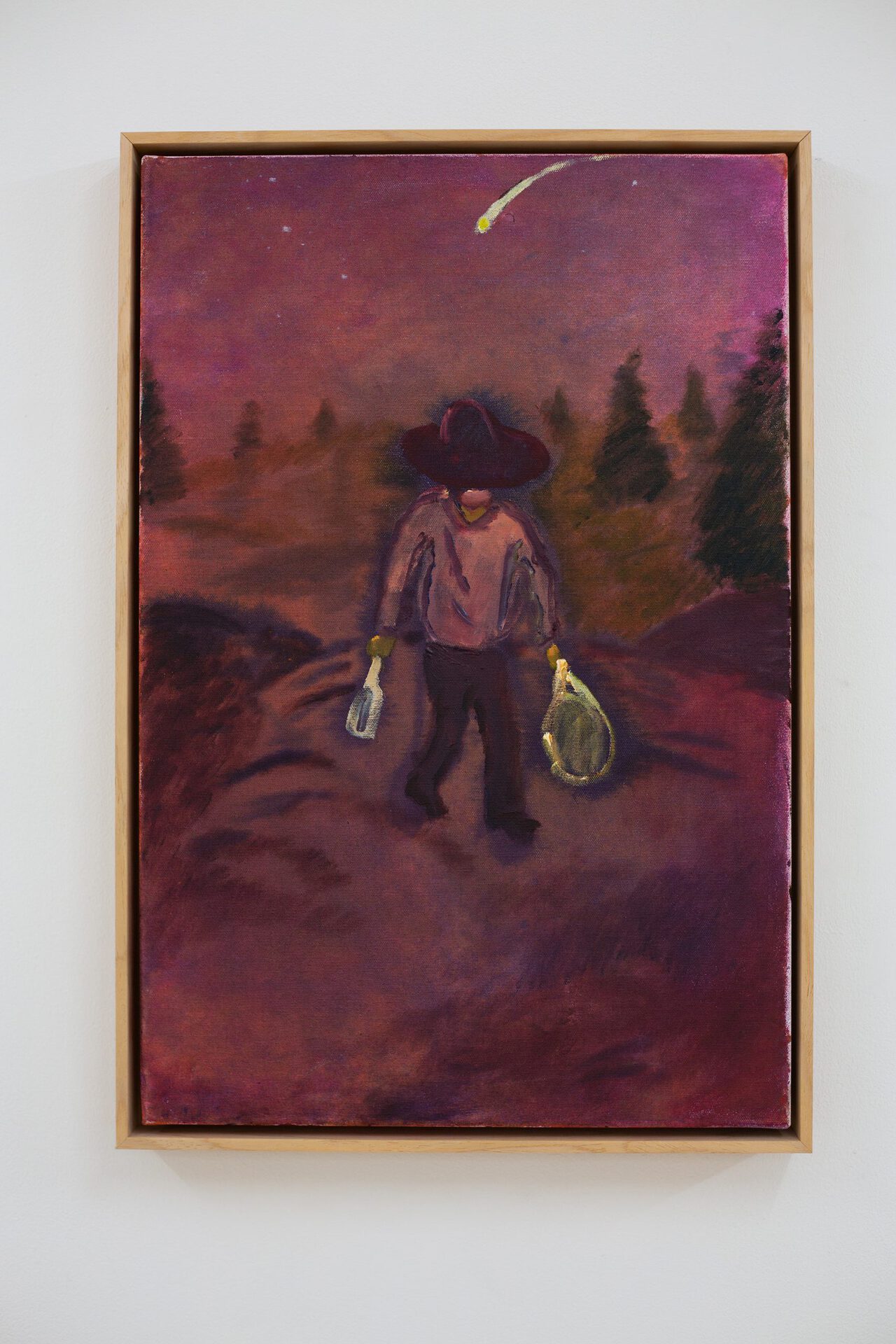
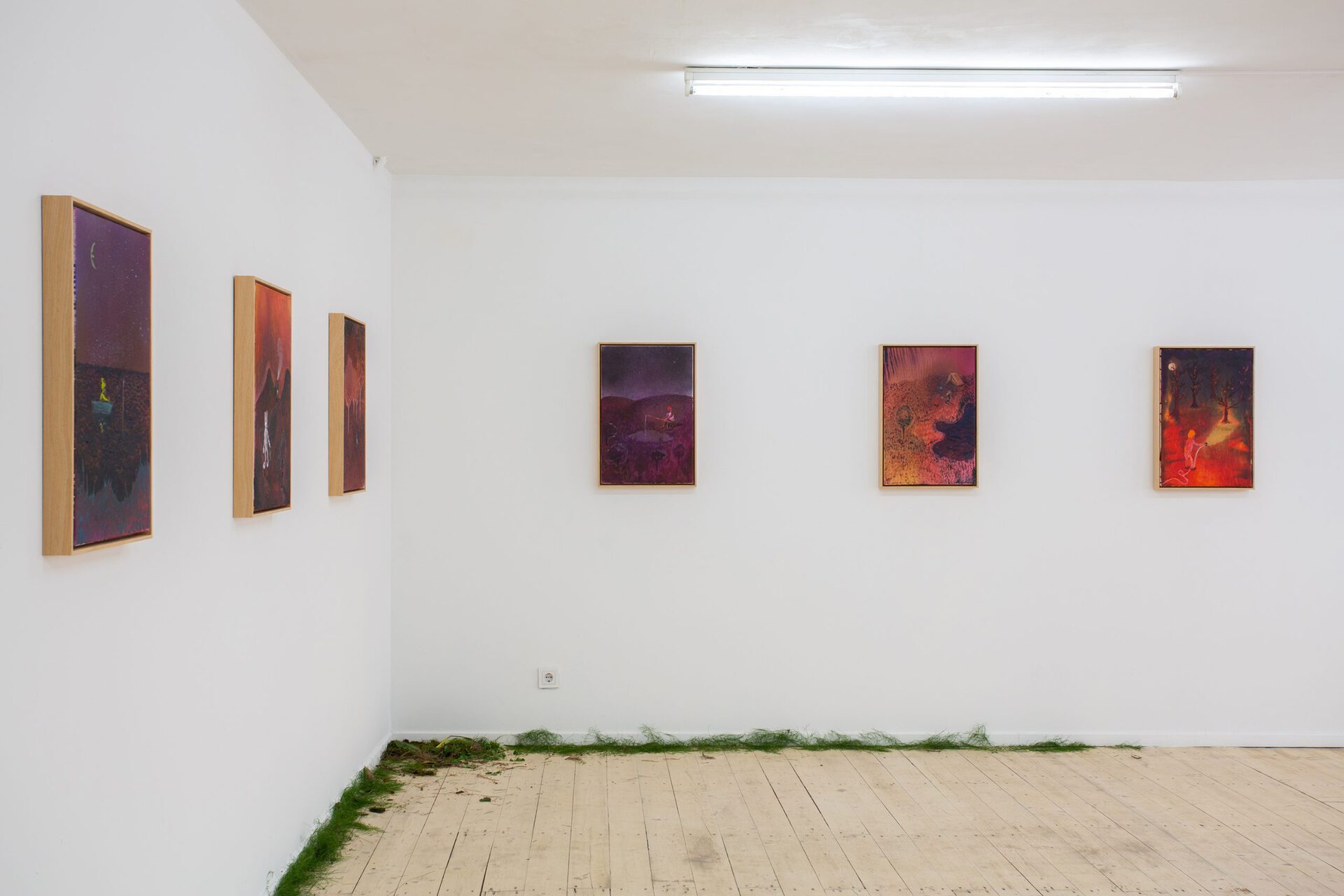
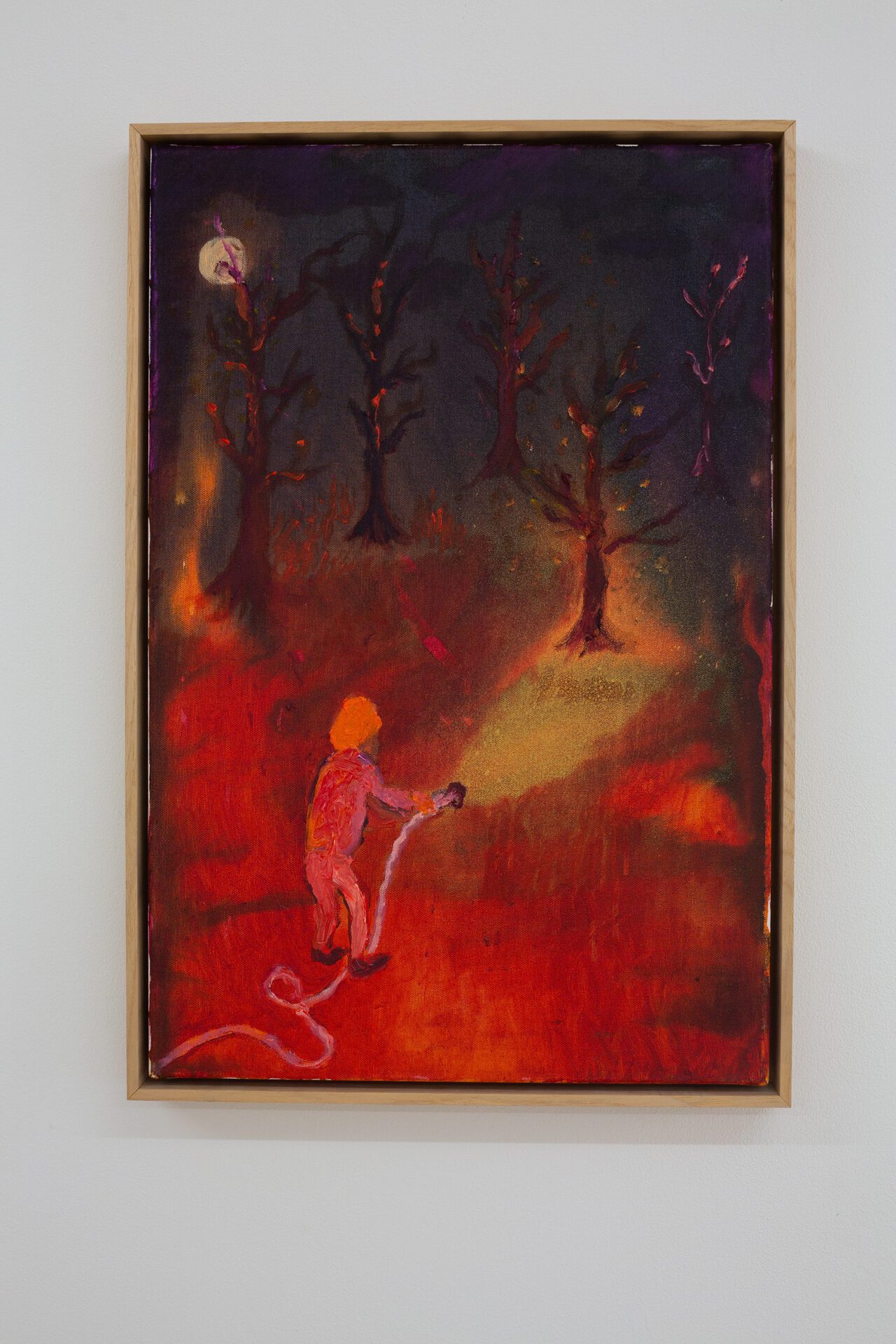
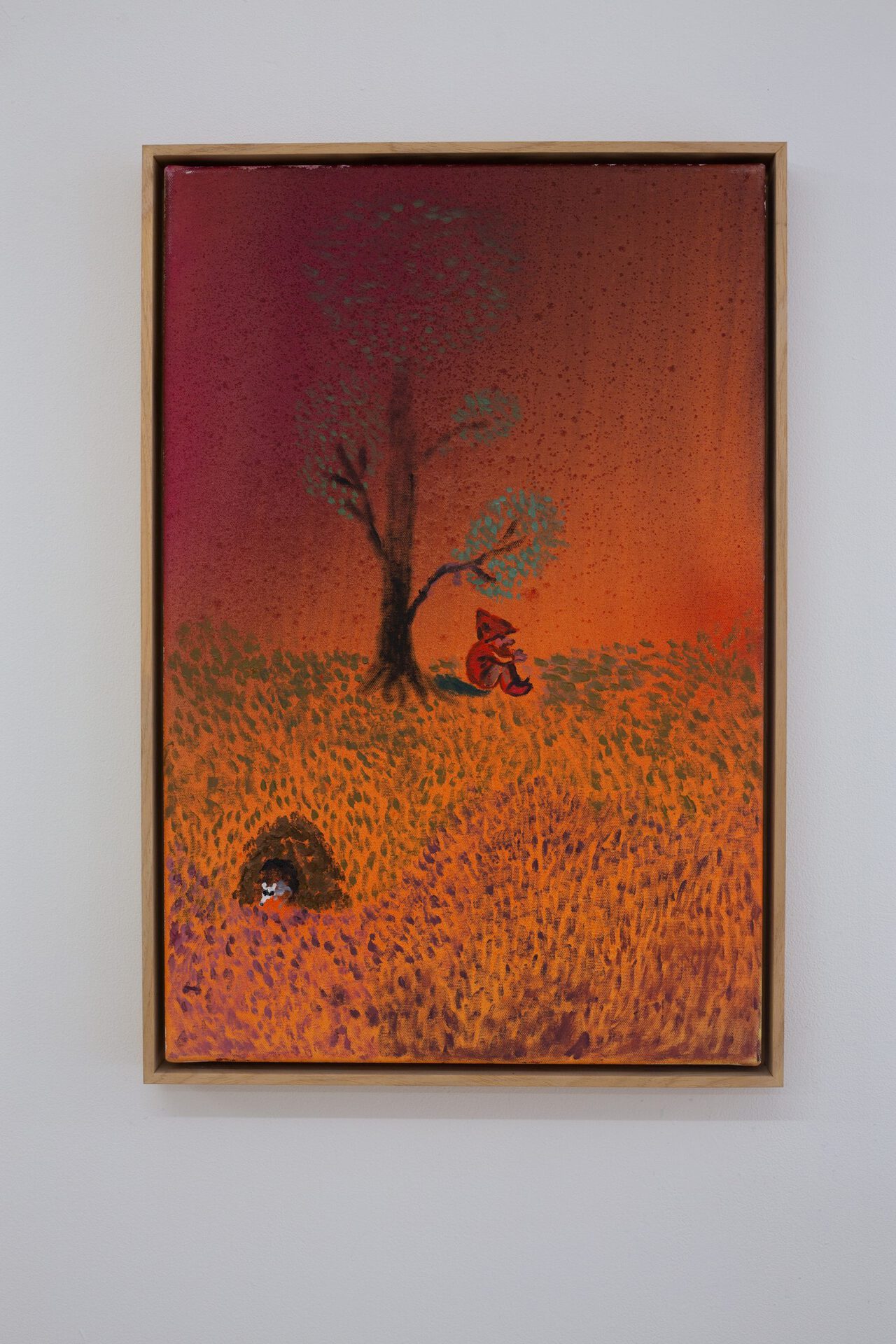
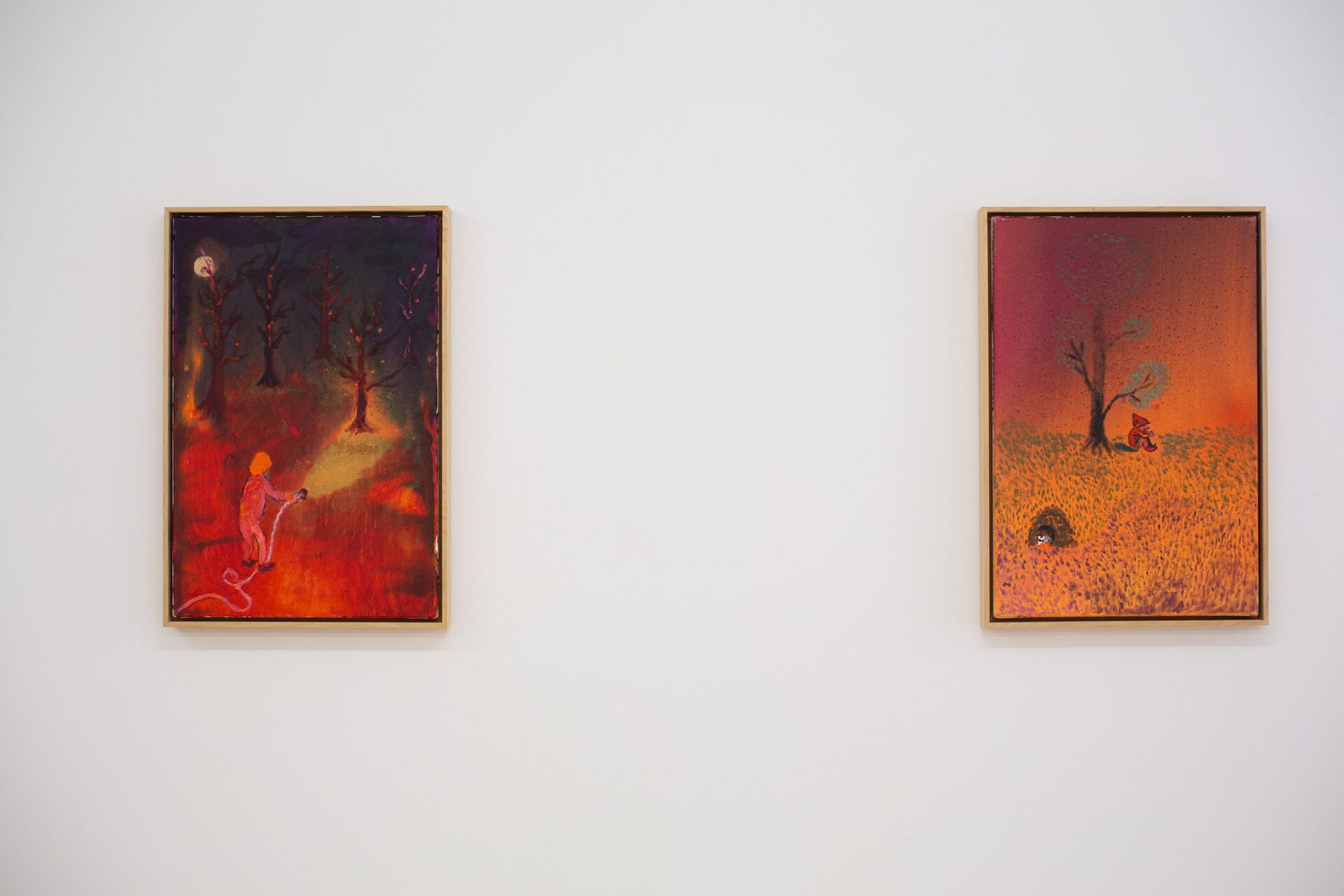
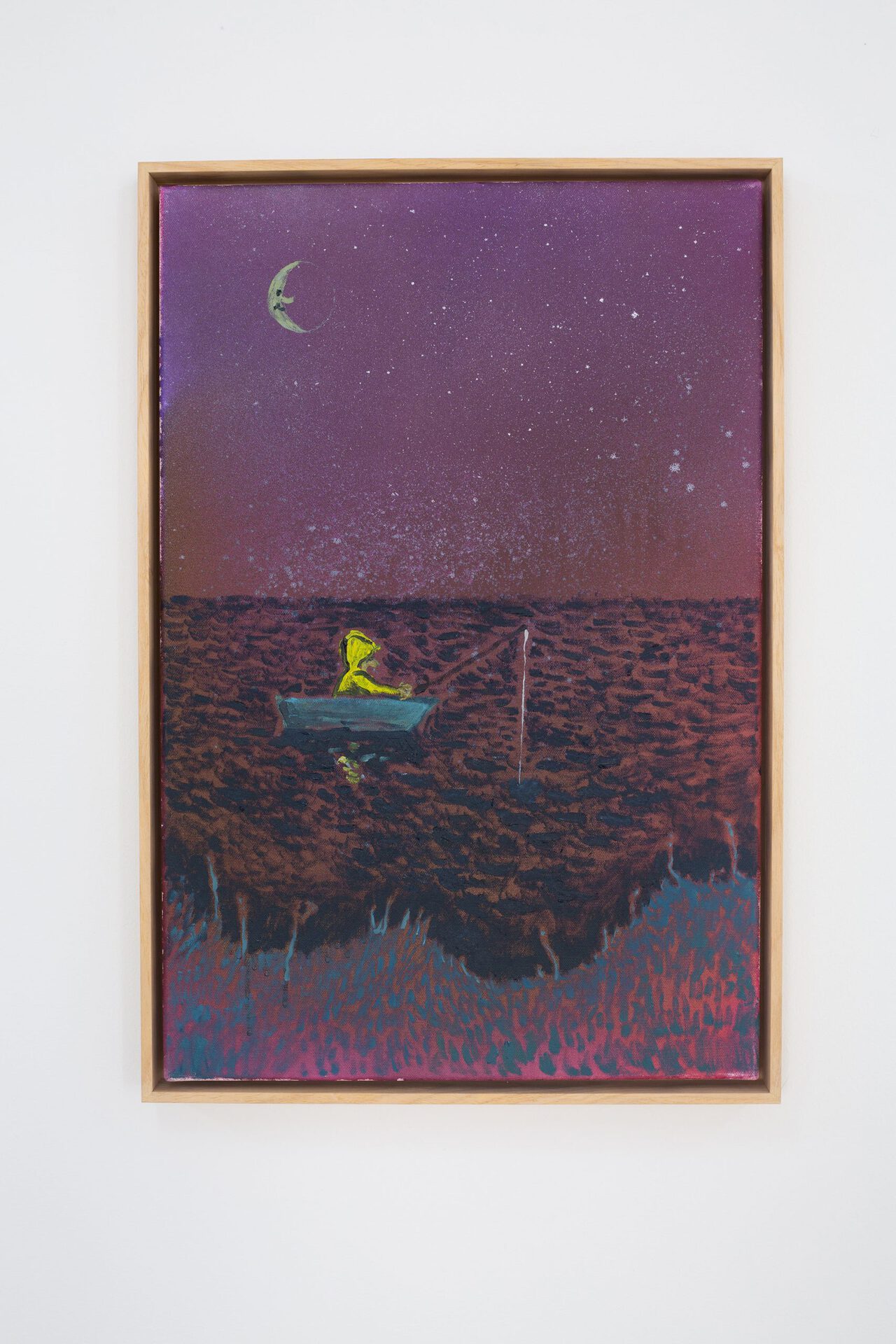
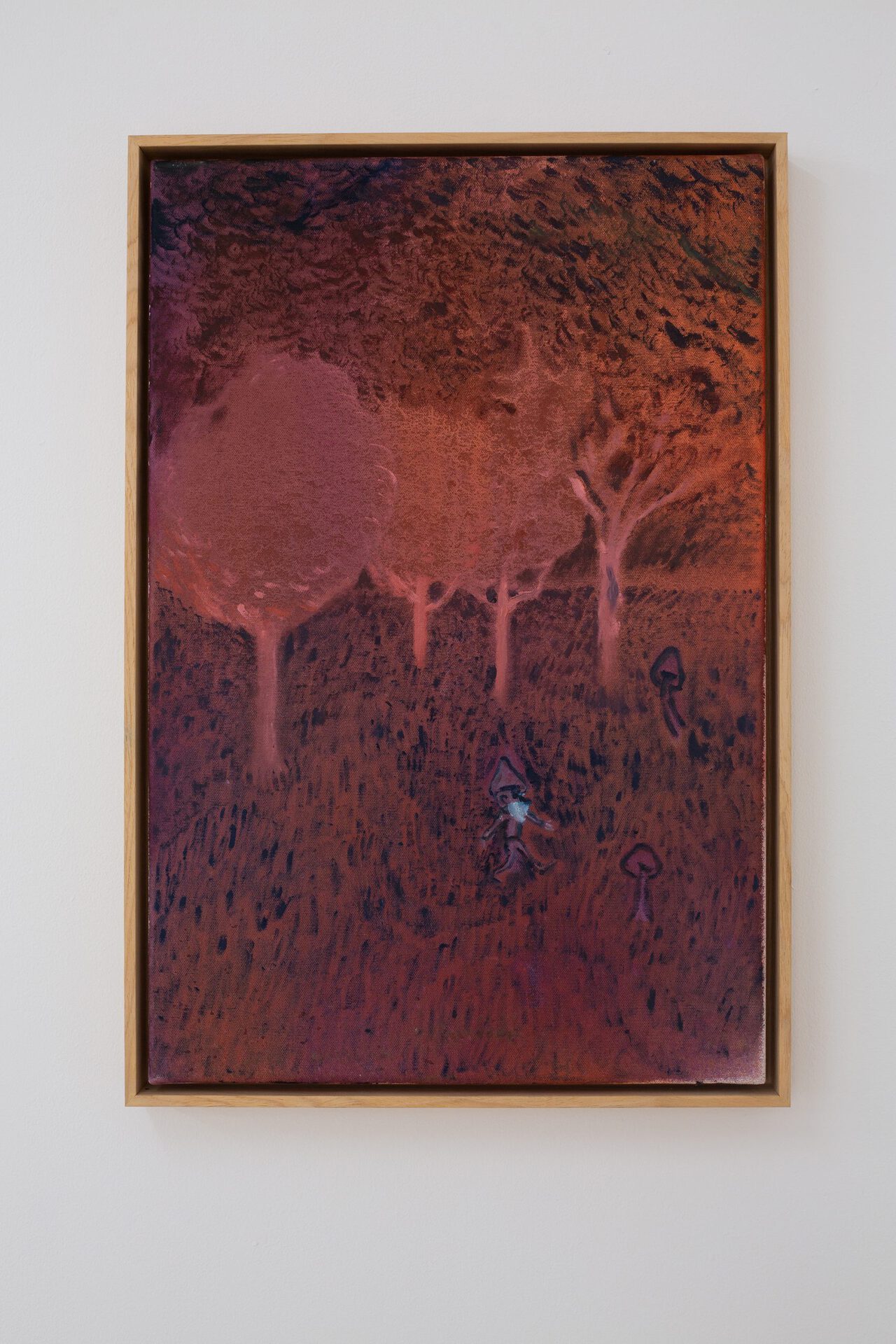
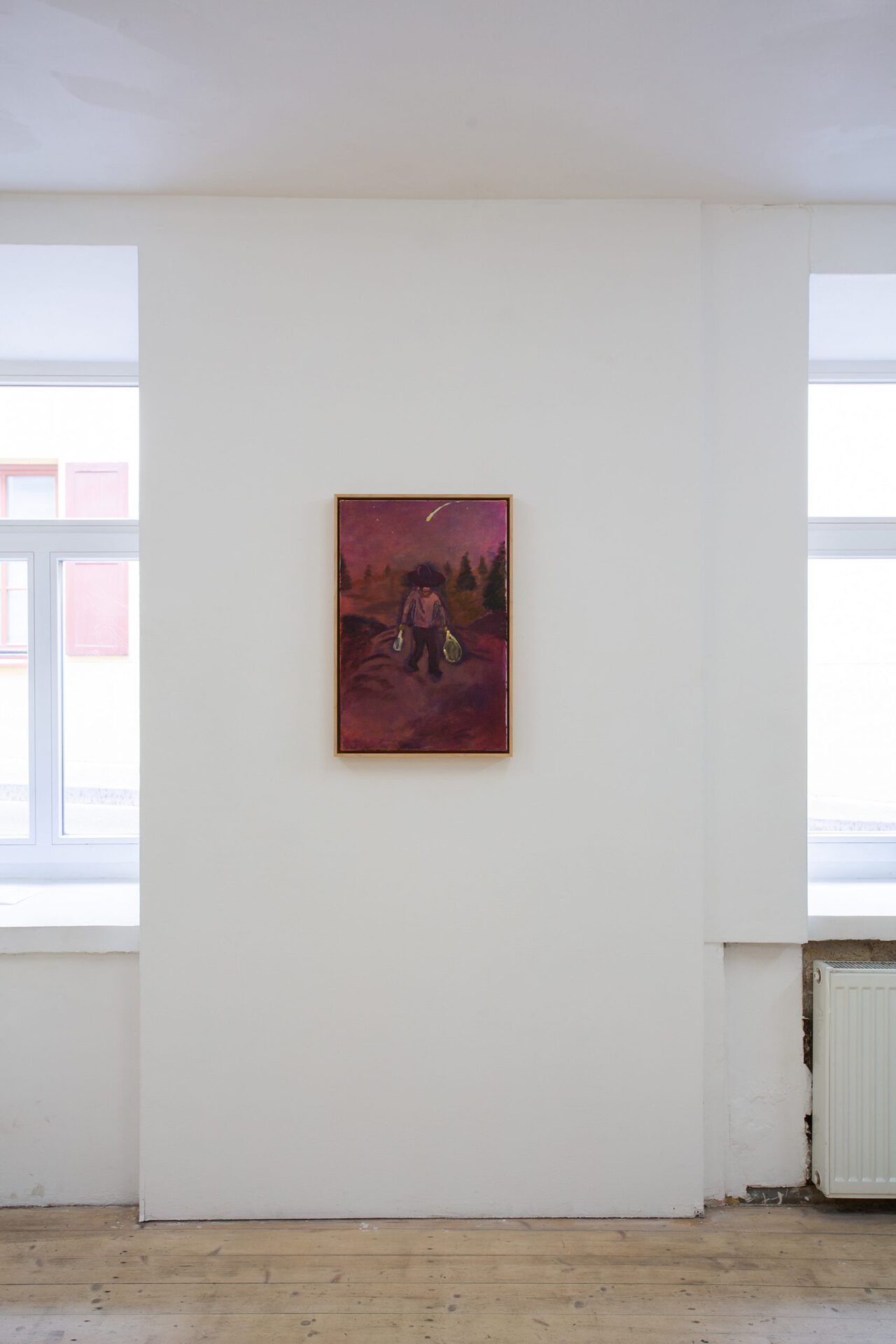
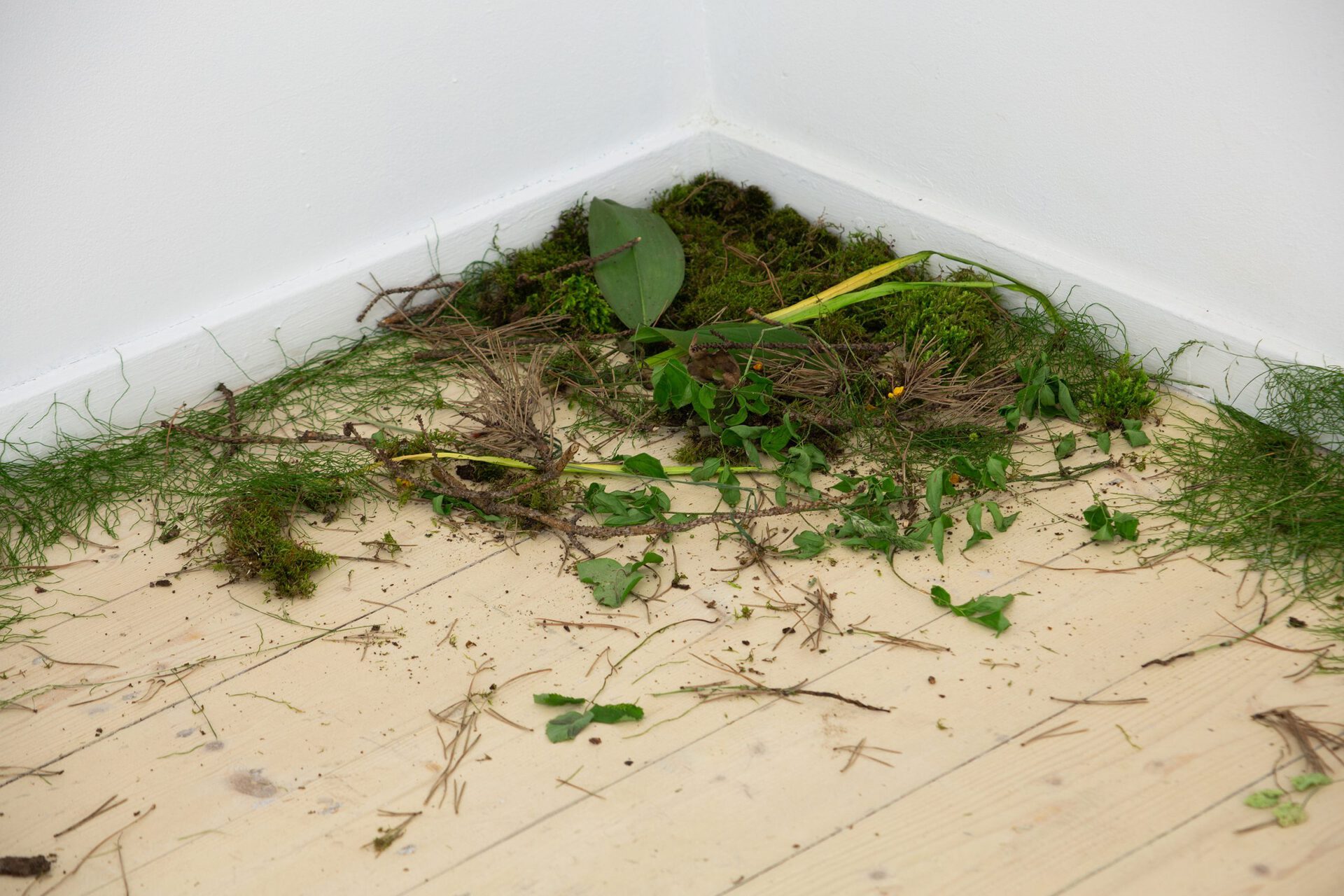
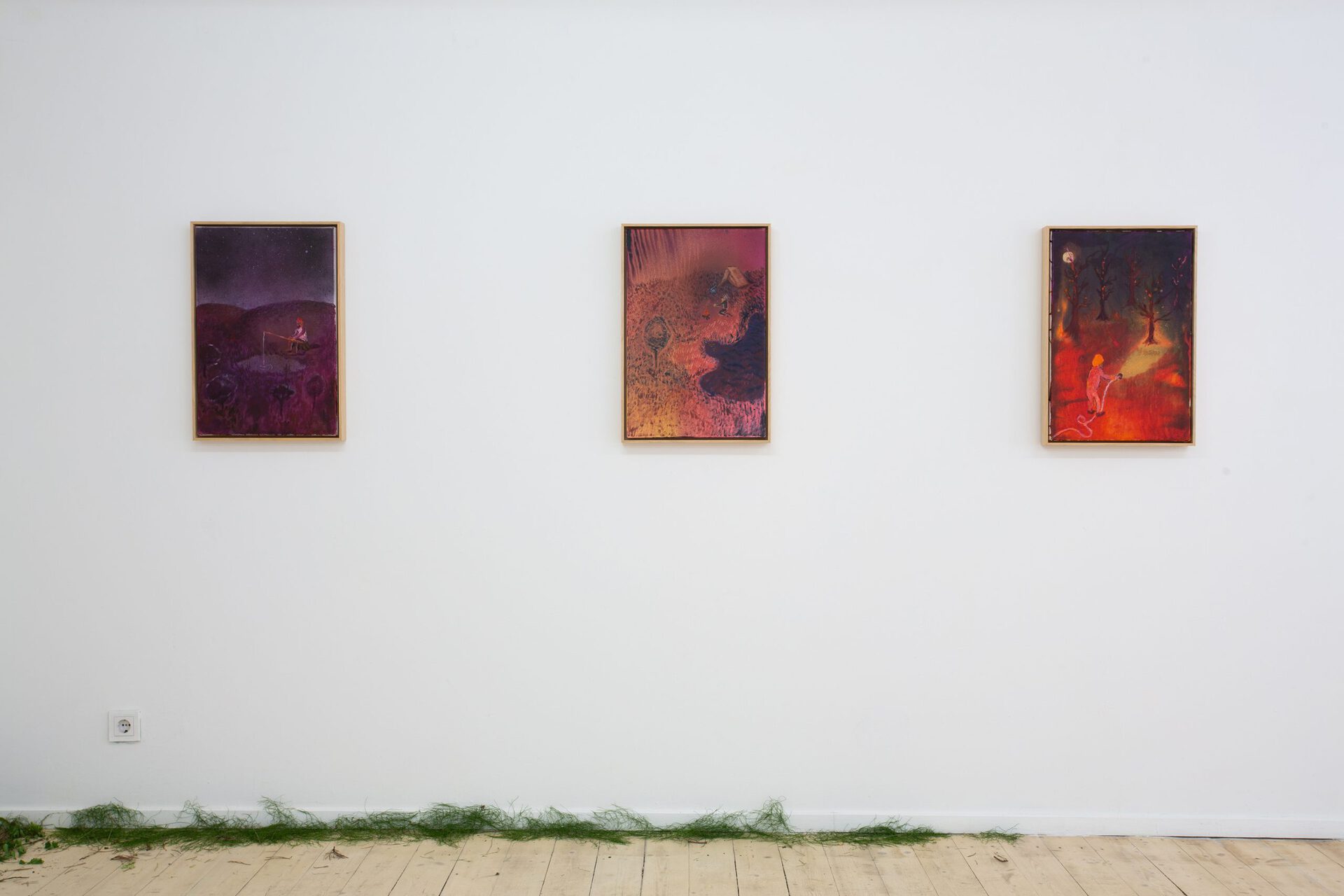
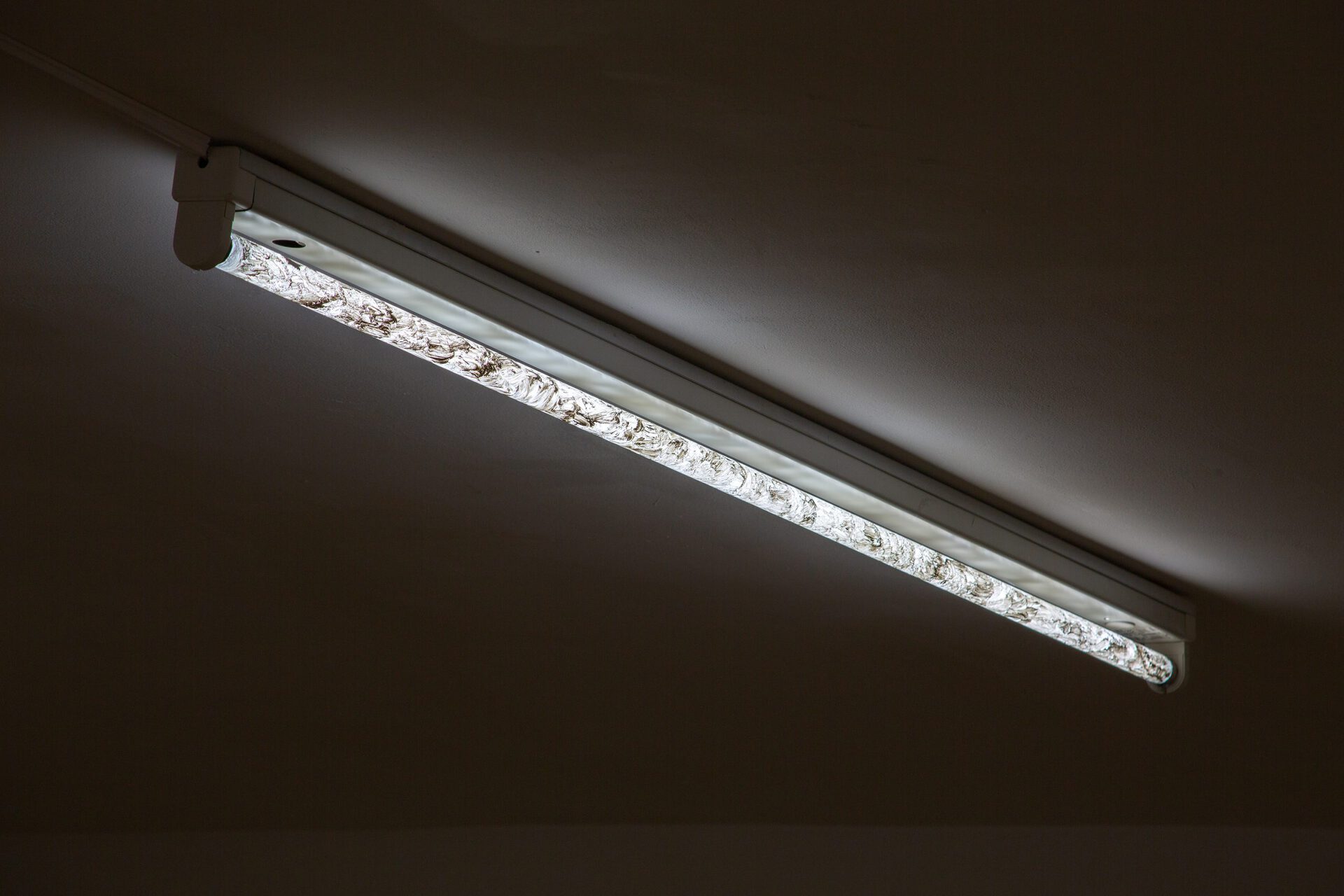
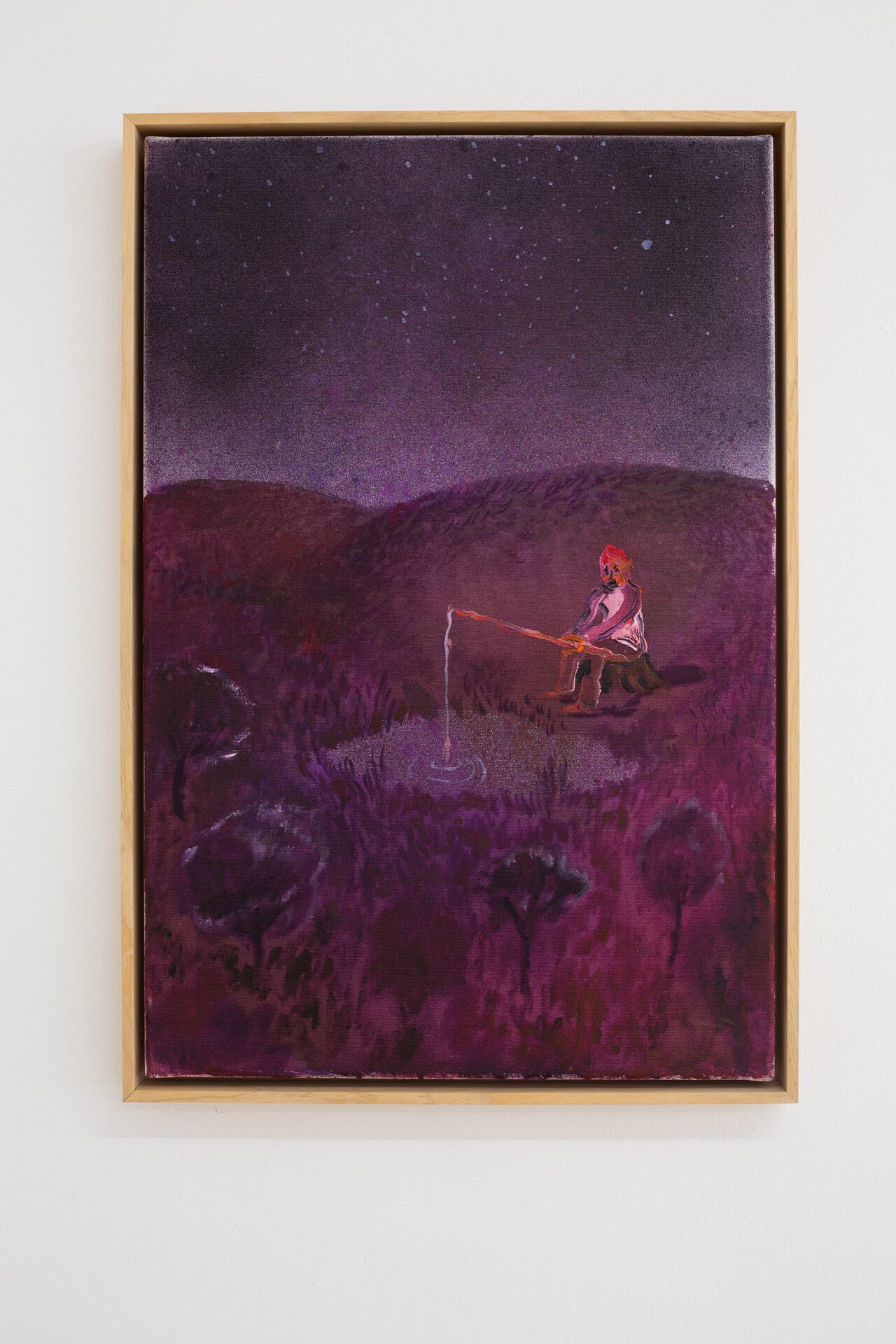
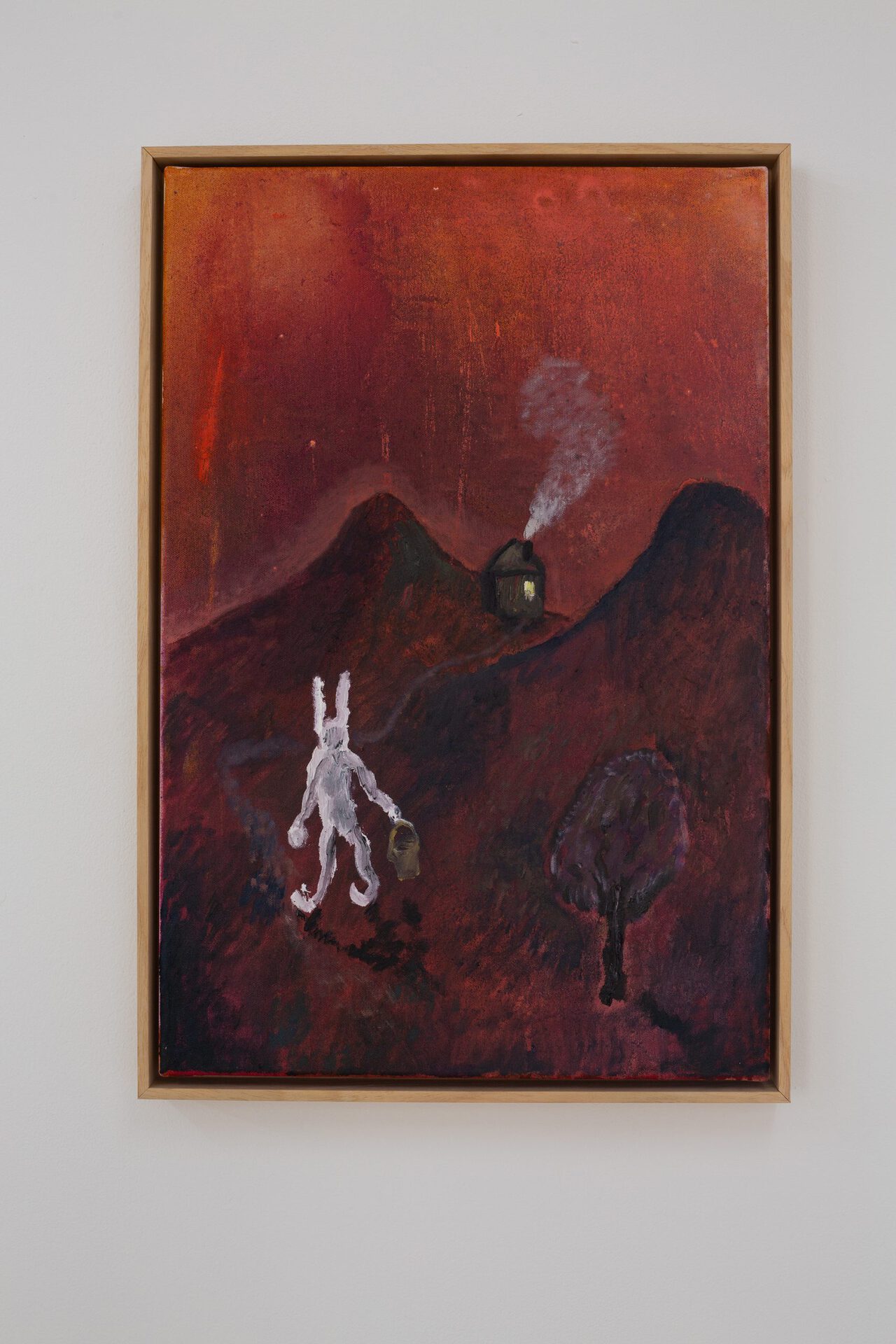
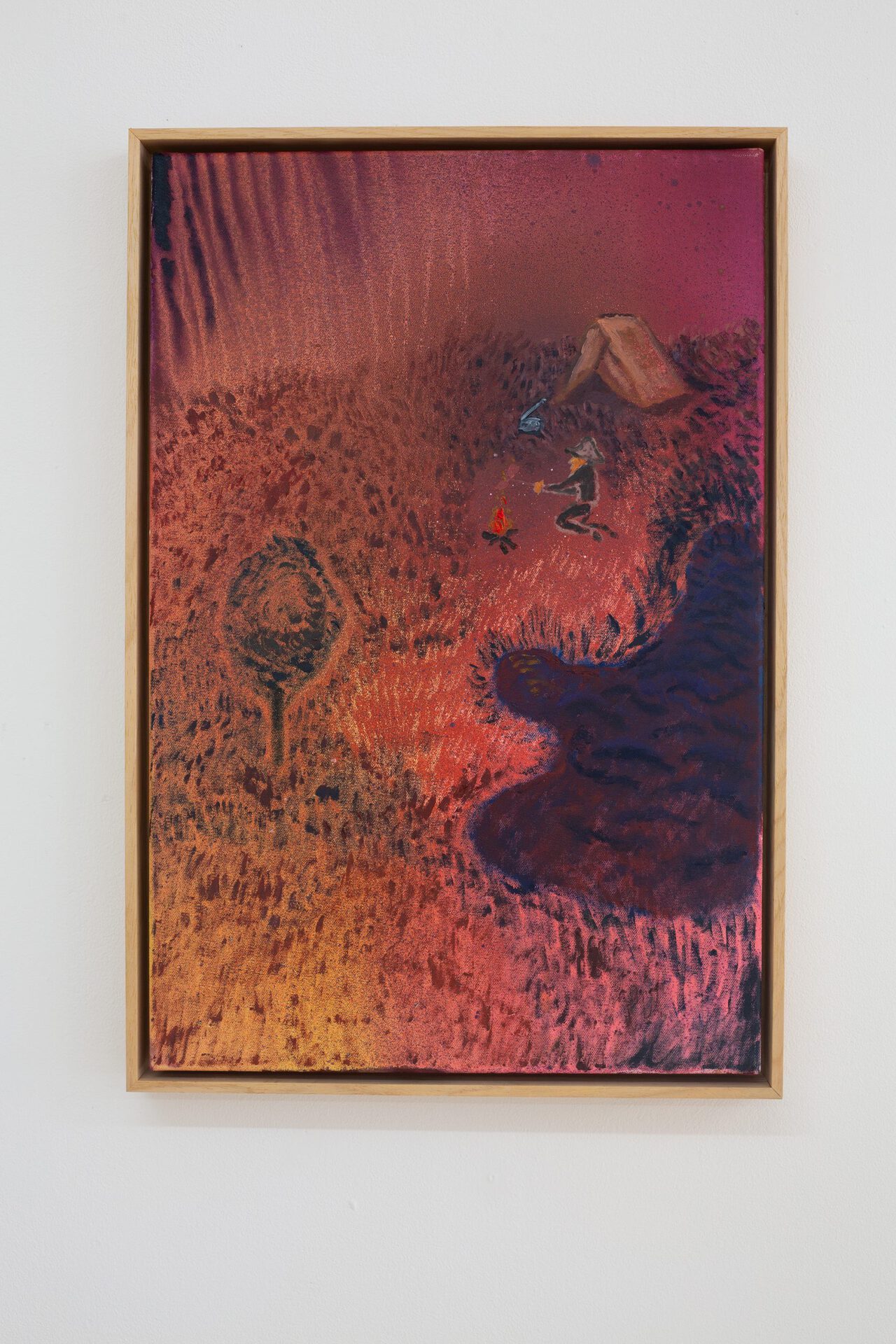
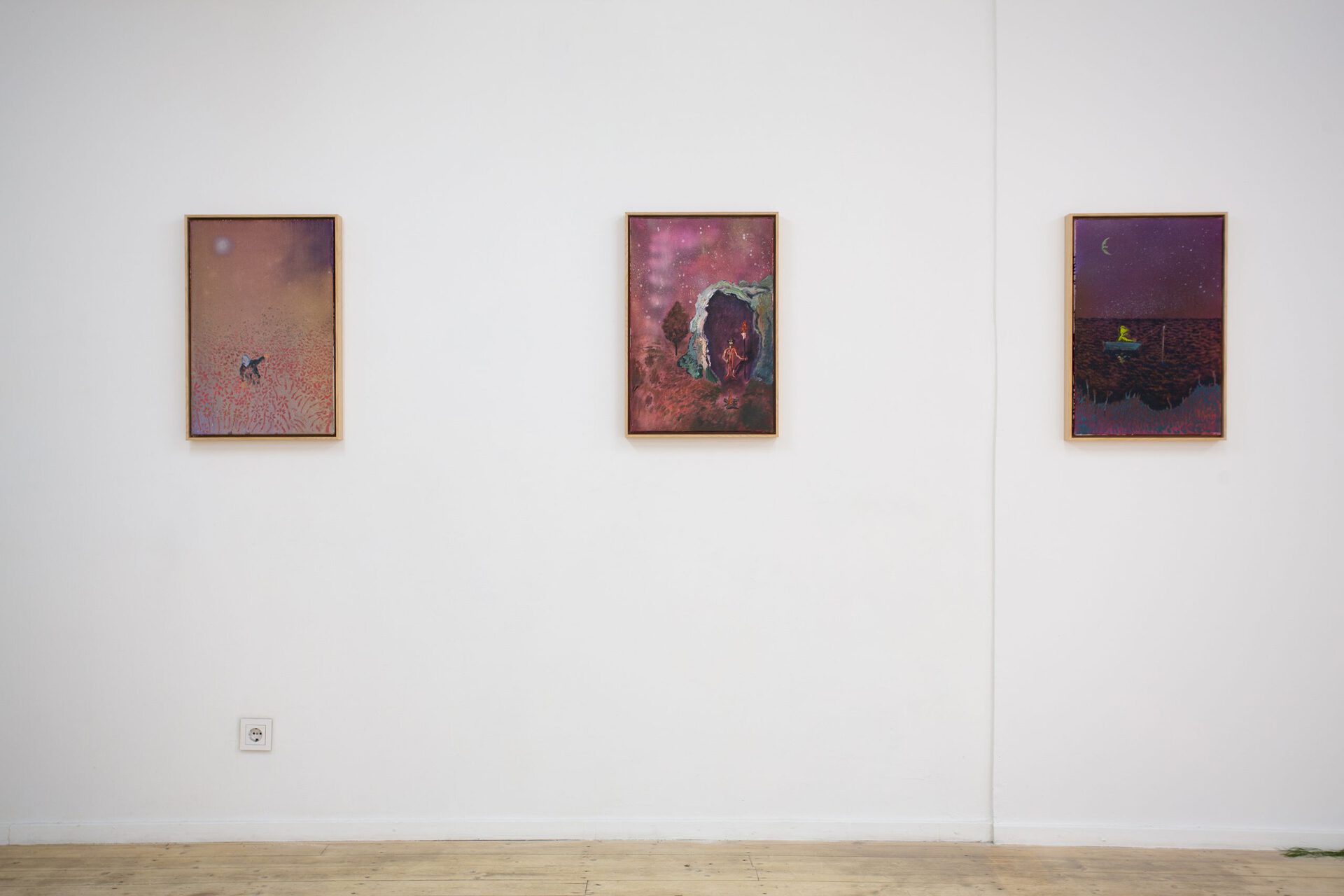
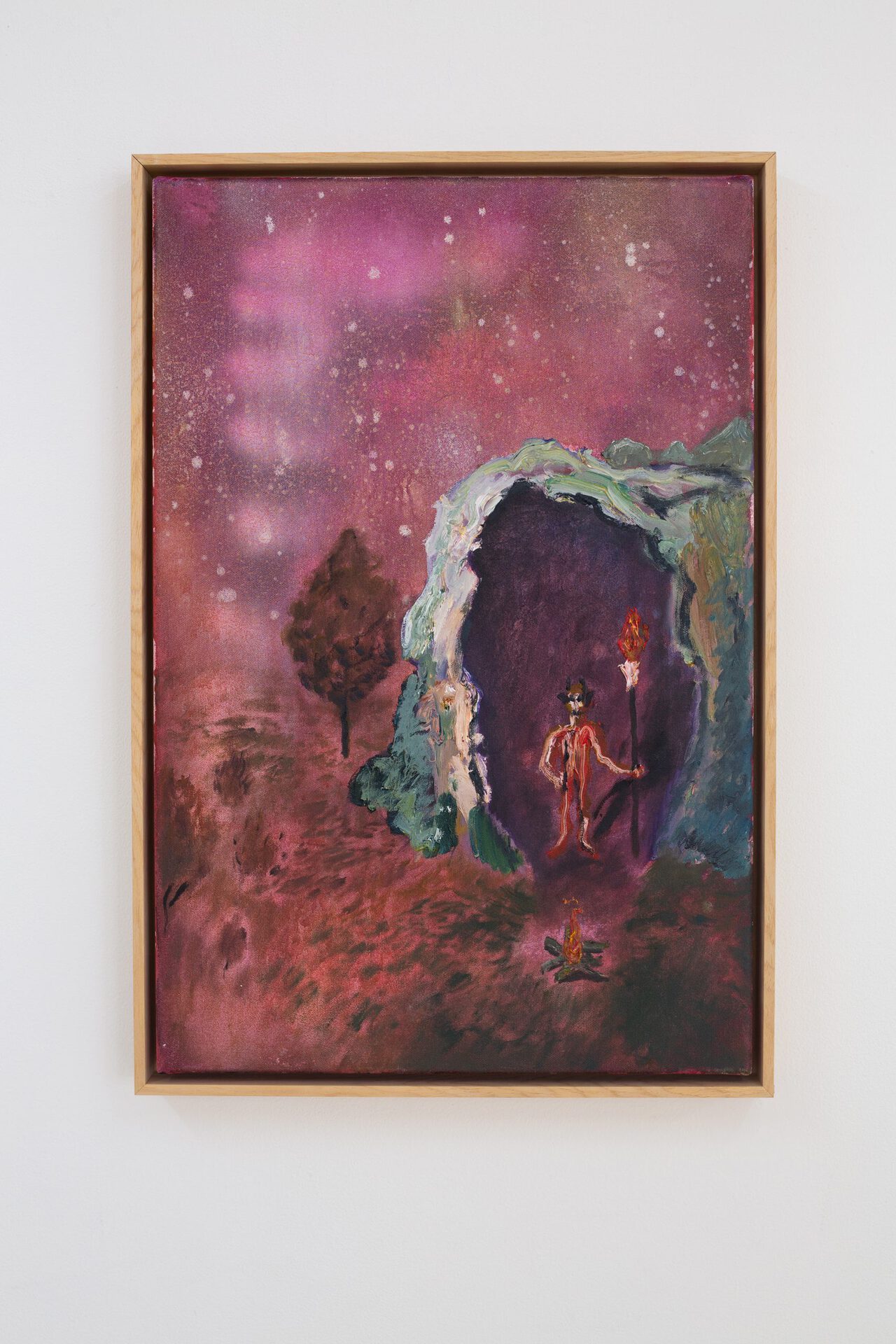
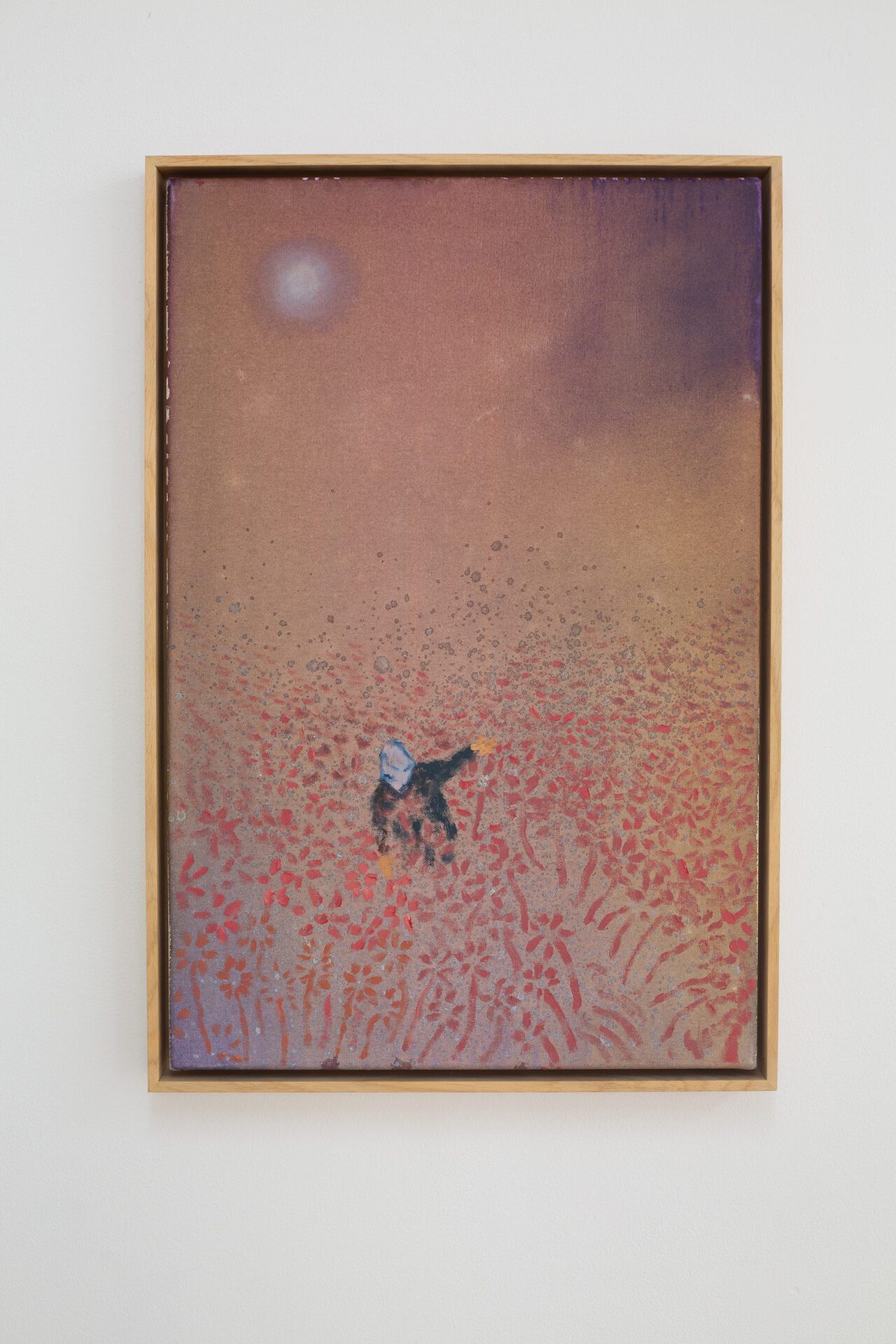
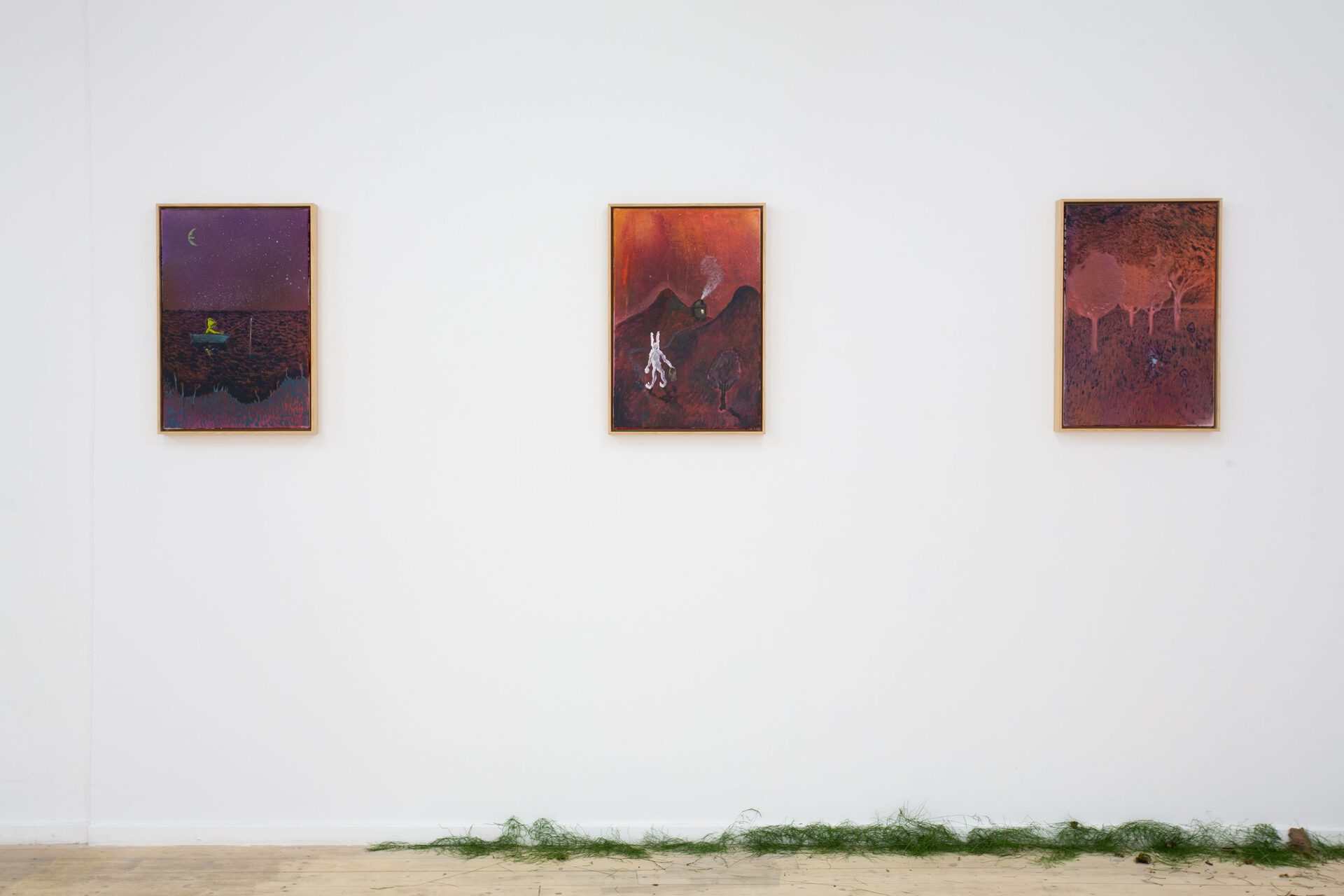
Location
EditorialDate
02.06 –01.07.2022Photography
Ugnius Gelguda, EditorialSubheadline
Review of Kaspars Groševs'solo exhibition at Editorial, Vilnius, by David Ashley KerrText
Kaspars Groševs’ latest series of paintings The Old Man Goes Home idles at a blurry crossroad between outsider art and figurative landscape traditions. An emanating palette of lucid paint and colour both work with and resist one another on the canvas to form ethereal worlds, places inhabited by unknown demi gods and spirits, workers, loners and gurus. No simple thing to pin down, Groševs oeuvre sits within a myriad of mediums and manifestations as a conceptual artist whose practice spans installation, performance, music-making, production and curatorial intervention. His earlier representational work possesses an air of transient flux - a space where ritual, totemic and mythical symbolism is conflated with the everyday realm of emojis, memes and graffiti culture, but also speak to failed utopias, disaffected youth and systemic collapse.
Groševs’ native Latvia sits nestled in a region deemed the Window to Europe more than once, and whose autonomy is questioned and threatened by external powers - sadly even today. Local folk tales are oftentimes an eclectic mixtape of imperial legacies and pagan-like rituals, from German barons and imposed serfdom, to epic stories of liberators, and later, “heroic” workers of the soviet union. Emerging as characters in Groševs’ more figurative works, these vestiges of a messy, inherited past bubble up to the surface for attention, occupying a space that floats between post-soviet dystopia, 90’s grunge, doom, 420 culture and post-internet irony. In this new series of paintings, lone protagonists engage in cathartic activities in timeless voids, without any cerebral sense of a clear, linear narrative. Like Latvia’s own, both ends of the story appear severed.
Historical tidbits, tales and other stories come up in everyday conversation in Latvia more often than not. One wonders if this recollection is a real-time reclamation of collective identity, and one likely necessary for a nation that has definitely seen some shit go down. Playing a crucial role in cultural development in Riga and the Baltics at large, Groševs’ creative practice has often bridged generations whose paths may not otherwise cross, between those whose trans-generational trauma is more tangible, and others more distant. As co-founder and director of one of Latvia’s oldest independent art spaces, 427 Gallery, Groševs’ cross-generational approach to curation fuses historical hyper-local narratives with our extreme present, nurturing impressive local talent while simultaneously showcasing international artists to a grateful local and regional audience. Through countless exhibitions, happenings and concerts, his eclectic output as an arts worker represents a chaotic yet unified whole, reminding us that memories may fade and take on new forms, under new systems and between new generations - but always with the residual debris of a past that is yet to fully settle.
The intoxicating feeling of a conflated past and present similarly rears its head in this new body of paintings. The work Burning Forest appears ominous in light of Russia’s ongoing war in Ukraine and climate change, as a man fruitlessly attempts to extinguish a raging forest fire, meanwhile the two characters in Hiding from Rain share the same present, yet shield themselves in apparent isolation. Works like Moon over Lake and Harvesting Time evoke the books or TV shows one read or watched as a child; full of characters both wondrous and simple, containing poignant moments that filled our youthful imagination. Baltic pine forest moss and leaves line the floor of the slightly dimmed gallery space, heightening our sense of fairy tales, of cute (but scary) bunnies and of gnomes, recalling naive yet profound tales of our own making. In Lopiņš, an old man appears as a solemn, transient figure, deliberately set apart from the other depictions of figures in landscapes, despite all paintings sharing a similar psychedelic twilight sky. Larger in proportion and ominously trudging along, bottle and bag in hand, he is fleeting, not as the other characters appear - whose presence seems static, almost rooted in place. The old man is not a stranger to us, as a recurrent figure in countless tales, myths and proverbs in cultures around the world. A kind of ancestral witness, wise, omnipresent; and here, unlike the others, the old man appears to pass by.
Is the old man ambivalent, irreverent even, to the spectacles before him? Is this some kind of laden metaphor for the stoic persistence of a people denied the right to authorship over their own land, culture and narrative? Or is the old man just straight up vibing, flâneuring through some metaphysical landscape of his own design? Maybe the old man is tired of how meta everything has become in our hyper-present, so built on shallow spectacle, blockbuster and ephemeral virality, or perhaps that is just me, and the old man is simply a mirror.
All genres, all creation-over-stagnation, moving, and yet always quietly reflecting, Groševs suggests we can all do well to take a lesson from the old man, which is to say, with our own reflective, spiritual selves - to sound like a new age hack. Not in any #livingmybestlife instagrammable vision of self care, but rather, the kind of transient musing we attempt in unadulterated solitude, like when we were young - with no spectator or gaze - digital or otherwise. As we search for meaning and memory in the blurry hot mess of our IRL and URL existence, it might serve us well to be like the old man, and pass by.
David Ashley Kerr